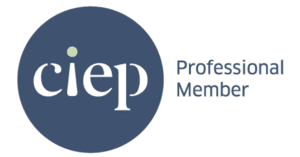Essential academic writing skills — clarity and precision, critical thinking, research skills, organisation skills and integrity — allow students and researchers to convey complex ideas clearly and effectively. These skills not only help in articulating thoughts and arguments but also ensure that your work adheres to the highest standards of academic rigour and ethical practice.
Clarity and precision involve expressing complex ideas in a straightforward manner, making your work accessible and understandable. Moreover, critical thinking enables you to analyse information and arguments rigorously, fostering well-supported conclusions. Research skills are vital for locating, evaluating, and synthesising information from diverse sources, underpinning your arguments with credible evidence. Next, organisation skills ensure that your writing is structured logically, enhancing the coherence and flow of your work. Finally, integrity in academic writing involves adhering to ethical standards, such as proper citation and avoiding plagiarism, to maintain the trust and credibility of your research.
This guide explores how to develop and master these 5 essential academic writing skills. Additionally, it discusses the importance of professional editing services — such as copyediting, line editing, proofreading, and developmental editing — in refining your manuscript for publication. By combining strong writing skills with expert editing, you can produce polished, impactful academic work that meets the highest standards of excellence.
Top 5 academic writing skills
#1 Clarity and precision: Clearly expressing complex ideas in a straightforward manner. This involves using language that is easily understandable to your audience while ensuring accuracy and specificity in your arguments and explanations.
#2 Critical thinking: Analysing information, arguments and evidence critically. This skill enables you to evaluate the validity and reliability of sources, identify assumptions, recognise biases and construct well-supported arguments based on evidence and logic.
#3 Research: Proficiency in locating, evaluating and synthesising information from various sources. This includes understanding different research methodologies, effectively using databases and library resources and integrating relevant evidence to support your claims.
#4 Organisation: Structuring your writing in a logical and coherent manner. This involves crafting clear introductions that outline the purpose and scope of your work, organising your ideas into cohesive paragraphs with smooth transitions and providing a conclusion that summarises your main points and implications.
#5 Integrity: Adhering to ethical principles and conventions of academic writing. This includes properly citing and referencing sources to give credit to the original authors, avoiding plagiarism and upholding standards of honesty and integrity in all aspects of your work.
How to develop the most important academic writing skills?
Clarity and precision
Broadly speaking, to develop, improve and master clarity and precision as an academic writing skill, consider the following suggestions:
- Practice summarising complex concepts in simple language. For instance, try explaining your ideas to someone unfamiliar with the topic.
- Use clear and concise language. In other words, avoid unnecessary jargon or overly complex sentences.
- Get feedback from peers or mentors on the clarity of your writing and revise accordingly.
- Read widely across disciplines to understand different writing styles and techniques for clarity.
Moreover, try out the following resources to practice clarity and precision in your academic writing:
Courses
Books
- On writing well by William Zinsser
- Style: Lessons in clarity and grace by Joseph M. Williams
- The elements of style by William Strunk Jr. and E. B. White
Platforms and tools
- Grammarly for grammar and style suggestions
- Hemingway Editor for improving readability
- ProWritingAid for in-depth grammar and style checking
- WhiteSmoke for grammar, style and translation
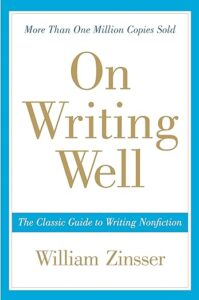
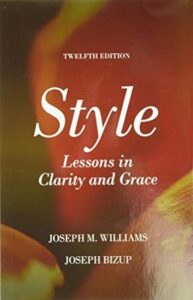

Critical thinking
Consider the following suggestions as a starting point to develop critical thinking as an academic writing skill:
- Engage with diverse perspectives and arguments on your topic. This could involve reading scholarly articles, attending seminars or participating in discussions.
- Develop the habit of questioning assumptions and evaluating evidence. For instance, ask yourself why a particular argument is valid or what evidence supports a claim.
- Practise writing argumentative essays or critiques where you analyse and evaluate different viewpoints.
- Seek feedback on your critical thinking skills from professors or peers and actively incorporate their suggestions into your writing.
Moreover, try out the following resources to practice critical thinking in your academic writing:
Courses
- Critical thinking at university: An introduction by the University of Leeds on FutureLearn
- Critical thinking skills for university success by the University of Sydney on Coursera
- Critical thinking: How to develop critical thinking skills on edX
Books
- Thinking, fast and slow by Daniel Kahneman
- How to read a book by Mortimer J. Adler and Charles Van Doren
- Asking the right questions: A guide to critical thinking by M. Neil Brown and Stuart M. Keeley
Platforms and tools
- PhilPapers for accessing academic papers and philosophical discussions
- Critical Thinking Web for resources and tutorial
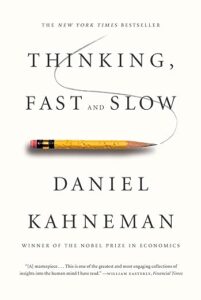


Research skills
Research skills are one of the most important academic skills. To improve this set of skills, start with the following:
- Familiarise yourself with research methodologies relevant to your field. This could involve taking courses, reading methodological literature or consulting with experts.
- Learn how to effectively use library resources, academic databases and citation management tools.
- Practice synthesising information from multiple sources into coherent arguments or literature reviews.
- Develop your ability to critically evaluate sources for credibility, relevance and bias.
In addition, try out the following resources to develop research as an academic writing skill:
Courses
- Understanding research methods by the University of London on Coursera
- Research concepts and skills on Udemy
- Digital humanities in practice: From research questions to results by Harvard University on edX
Books
- Research design: Qualitative, quantitative, and mixed methods approaches by John W. Creswell
- The craft of research by Wayne C. Booth, Gregory G. Colomb and Joseph M. Williams
- Where research begins: Choosing a research project that matters to you (and the world) by Thomas Mullaney and Christopher Rea
Platforms and tools
- Research Rabbit for citation-based literature mapping tool to create collections of papers and visualise links between publications
- Elicit for automating time-consuming research tasks like summarising papers, extracting data and synthesising your findings.
- Google Scholar for academic papers
- JSTOR for accessing scholarly journals
- PubMed for accessing biomedical and life sciences literature
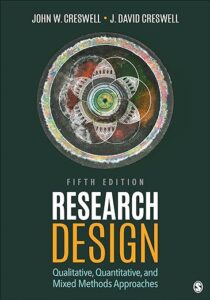
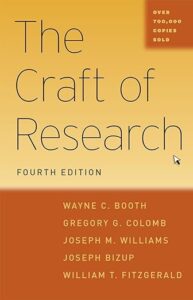
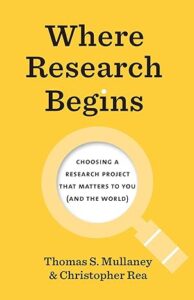
Organisation skills
Consider the following suggestions to develop or improve your organisation skills in the context of academic writing:
- Outline your writing before you start drafting. A clear outline helps you organise your ideas and maintain focus throughout the writing process.
- Use topic sentences to introduce the main ideas in each paragraph and transitions to connect them logically.
- Review and revise the structure of your writing to ensure coherence and flow. Cut out irrelevant or redundant information.
- Seek feedback on the organisation of your writing from peers or instructors and make revisions accordingly.
Additionally, try out the following resources to develop the organisation as an academic writing skill:
Courses
- Writing and editing: Structure and organisation by the University of Michigan on Coursera
Books
- Write your dissertation in fifteen minutes a day by Joan Bolker
- The writer’s diet by Helen Sword
- How to write a lot: A practical guide to productive academic writing by Paul J. Silvia
Platforms and tools
- Scrivener for organising and structuring long documents
- Trello for managing writing projects
- Endnote, Jabref, Mendeley or Zotero for a citation manager
- Getting organised for academic writing scheduling and planning tools
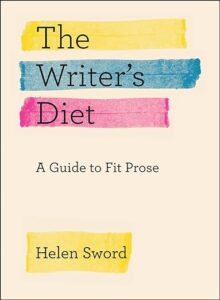
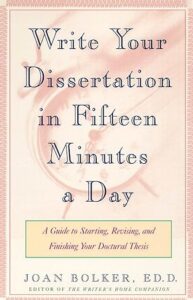
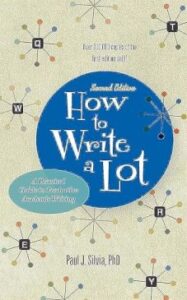
Integrity
To develop integrity as a crucial academic writing skill, remember to:
- Familiarise yourself with the conventions of citation and referencing in your field. Consult style guides such as APA, MLA or Chicago for specific formatting rules.
- Keep detailed records of your sources as you conduct research to facilitate accurate citation.
- Understand what constitutes plagiarism and how to avoid it. When in doubt, cite your sources.
- Use plagiarism detection software to check your work before submission and address any issues identified.
- Consistent practice, seeking feedback and continuous improvement are essential for mastering these academic writing skills. Do not hesitate to reach out to professors, writing centres or online resources for guidance and support along the way.
Furthermore, try out the following resources to develop academic integrity:
Courses
- All my own work: Exploring academic integrity by Open University
- Plagiarism (part of Writing in Sciences by Stanford University) on Coursera
- Academic writing styles: APA, MLA, HARVARD & CHICAGO on Udemy
- Introduction to research ethics: Working with people by the University of Leeds on FutureLearn
Books
- The little book of plagiarism by Richard A. Posner
- Doing honest work in college: How to prepare citations, avoid plagiarism, and achieve real academic success by Charles Lipson
- The Chicago manual of style, 18th edition
Platforms and tools
- Purdue OWL for citation and referencing guides
- Grammarly, Similarity Check, QuillBot or Turnitin for plagiarism detection
- APA, Chicago Manual of Style or MLA for a style guide
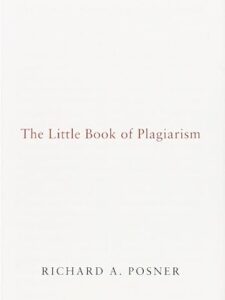
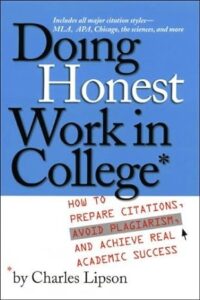
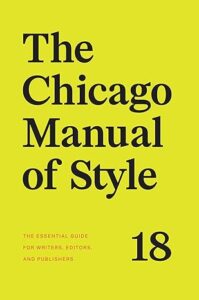
Beyond academic writing skills: The role of professional editing services
While mastering the five essential academic writing skills — clarity and precision, critical thinking, research skills, organisation skills and integrity — forms the foundation of excellent academic writing, these skills alone may not be sufficient to finalise a book manuscript or a journal article. Preparing them for publication may involve additional steps to ensure they meet the highest standards of academic rigour and readability. This is where professional editing services come into play. Different types of editing services can enhance your academic manuscript:
Developmental editing, also known as substantive or structural editing, involves a comprehensive review of your manuscript’s content, structure and organisation. A developmental editor provides feedback on your work’s overall argument, coherence and logical flow. They may suggest significant revisions to improve the clarity and impact of your research, helping to strengthen your manuscript’s overall quality and effectiveness.
Copyediting focuses on correcting grammar, punctuation, spelling, and syntax errors. It ensures consistency in language usage and adherence to style guides (e.g. APA, MLA, Chicago). A copyeditor will also check for consistency in terminology, formatting and citations. This level of editing is crucial for making your manuscript polished and professional.
Line editing goes beyond basic copyediting by addressing the style and flow of your writing. It involves refining sentence structure, improving word choice, and enhancing your manuscript’s overall readability and tone. A line editor ensures that your ideas are communicated clearly and effectively, making your argument more persuasive and engaging.
Proofreading is the final step before publication and focuses on catching any remaining errors in the text. This includes minor mistakes in grammar, punctuation, and formatting that may have been overlooked during previous editing stages. Proofreading ensures your manuscript is error-free and ready for publication.
Key takeaways
Mastering the 5 essential academic writing skills — clarity and precision, critical thinking, research skills, organisation skills and integrity — is fundamental to producing high-quality academic work. Each skill contributes to different aspects of writing, from articulating complex ideas clearly to ensuring the ethical use of sources. By continually developing these skills through practice, feedback and the use of various resources, you can significantly enhance the quality of your academic writing.
However, achieving proficiency in these skills is often just the beginning. Finalising an academic text such as a book manuscript or a journal article requires additional refinement. Professional editing services, including copyediting, line editing, proofreading, and developmental editing, play a crucial role in preparing your manuscript for publication. These services provide expertise, objectivity and efficiency, helping elevate your work to meet the rigorous standards of academic publishing.
As an editor and indexer, I routinely work with academic writers, preparing their texts for publication in academic journals and presses. If your academic manuscript needs a second pair of eyes, contact me for a free sample edit (and remember to use my early bird discount).

